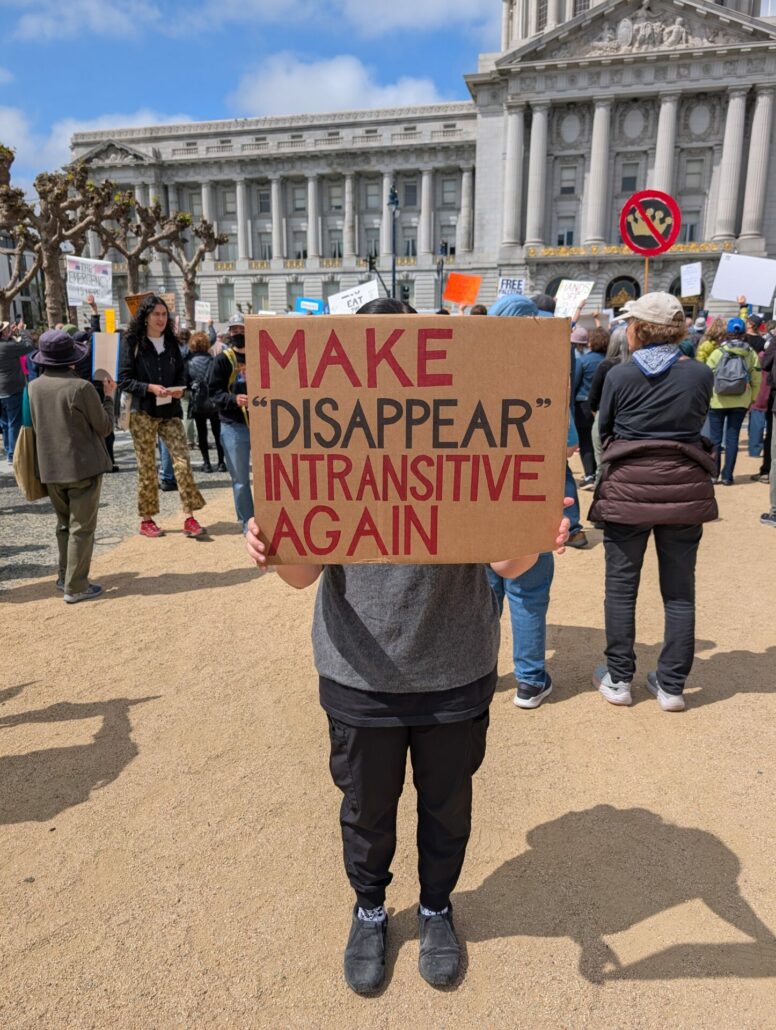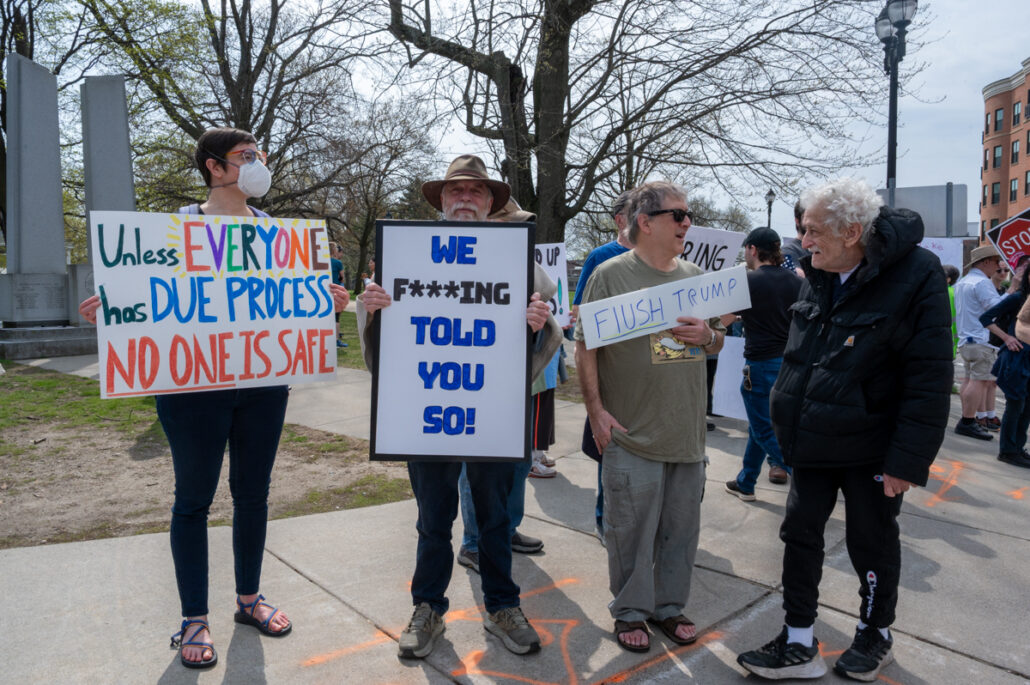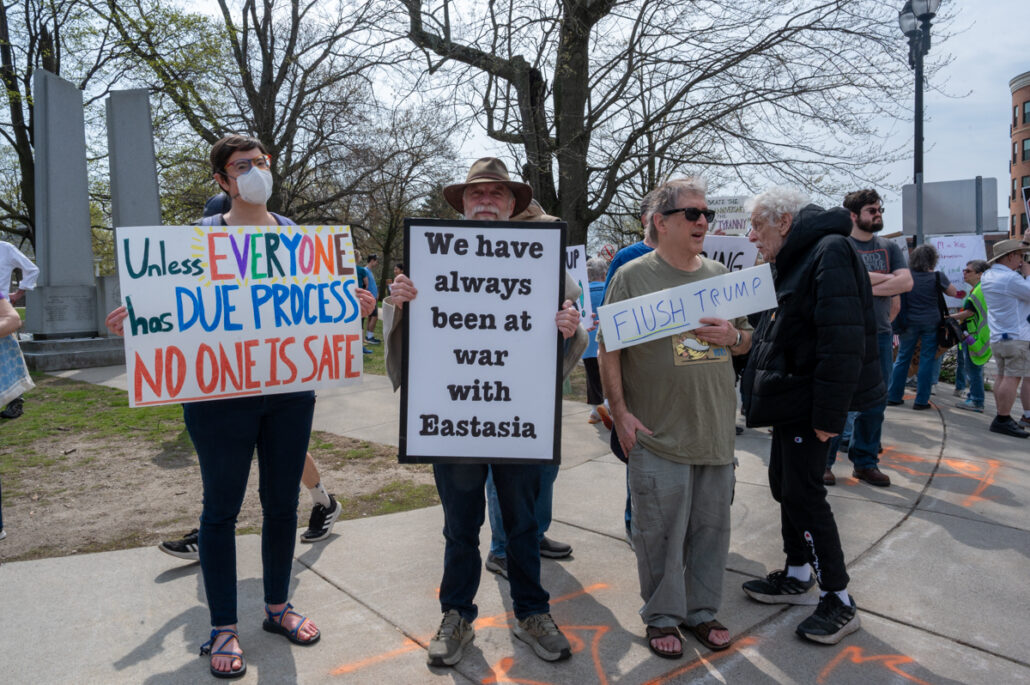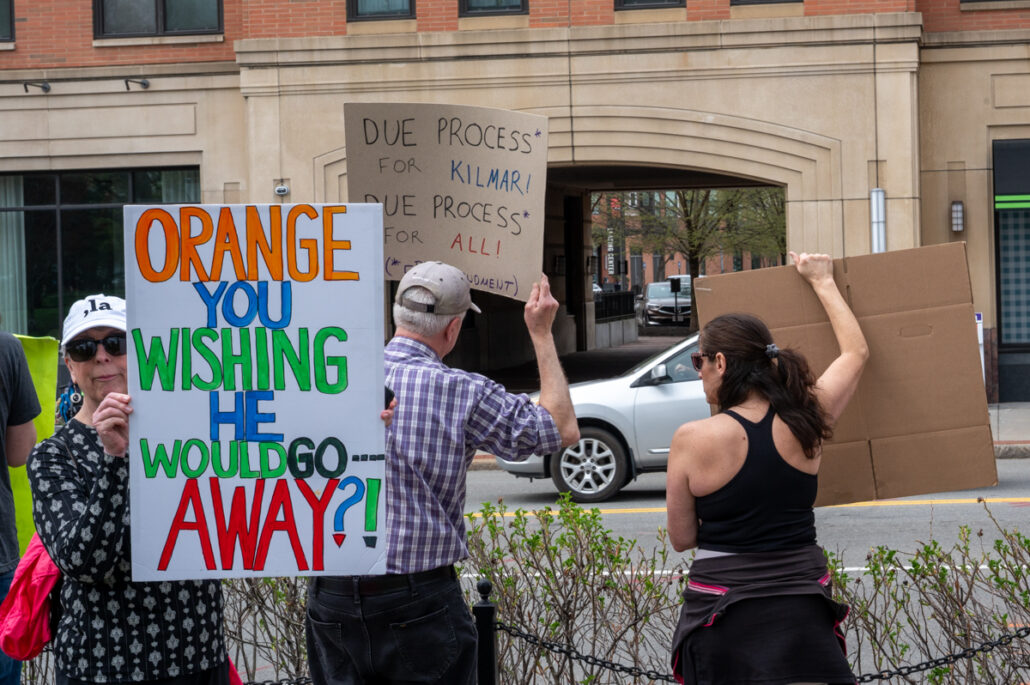Yesterday, 3 federal judges stepped up to weigh in on King “we can’t give everyone a trial, it would take too long” Trump’s recent abuses of power.
Read the whole article by Jay Kuo,
In Maryland, Judge Paula Xinis is overseeing the Abrego García case.
“That ends now.”
In Maryland, Judge Paula Xinis is overseeing the Abrego García case. She is tasked with implementing the unanimous ruling by the Supreme Court that the government must “facilitate” the return of Abrego García to the U.S. Her efforts have been stymied by Justice Department lawyers who, at least perhaps until yesterday, have refused to provide information about what steps they have taken to secure his release from custody and what they will do to facilitate his return.
Judge Xinis ordered what’s known as “discovery” over why the government won’t simply cooperate. That opened the door for plaintiffs to pose questions, known as “interrogatories,” to the government and to demand production of relevant documents. Among the interrogatories were some quite basic ones…
…
Judge Xinis could barely contain her ire. She wrote in her order,Defendants—and their counsel—well know that the falsehood lies not in any supposed “premise,” but in their continued mischaracterization of the Supreme Court’s Order. That Order made clear that this Court “properly required the Government to ‘facilitate’ Abrego Garcia’s release from custody in El Salvador and to ensure that his case is handled as it would have been had he not been improperly sent to El Salvador.”
In New York, Judge Alvin Hellerstein leaned in hard during a contentious hearing on whether to extend his existing hold on the deportation of migrants under the Alien Enemies Act proclamation.
“People are being thrown out…because of their tattoos.”
In New York, Judge Alvin Hellerstein leaned in hard during a contentious hearing on whether to extend his existing hold on the deportation of migrants under the Alien Enemies Act proclamation. That hold has been in place temporarily since April 9.
The backdrop here is important. Since his initial restraining order, the government has admitted that many of the migrants it rendered to the CECOT prison in El Salvador did not have criminal records. Rather, it only suspected they were gang members because of their tattoo markings. There have been several highly publicized cases of innocent people—a soccer player, a barber—being detained and summarily deported to CECOT on their tattoos alone, even when the markings had nothing to do with gang activity.
Judge Hellerstein took the government to task. “This is not a secret court, an inquisition from medieval times. This is the United States of America. People are being thrown out of the country because of their tattoos.” He added that the White House cannot “hire a jail in a foreign country” to subject people “to cruel and unusual punishment not allowable” here.
As for their suspicions of gang membership, the judge was equally firm. “The law is clear: If you are kicking out a person, you give them an opportunity to defend themselves,” the judge said. “You can’t kick someone out by guilt by association.”
Per reporting by the Wall Street Journal on the hearing, Hellerstein criticized the government’s current methods of “notifying” detained migrants that were slated for deportation, saying such notices came too late, needed to be in their native languages instead of only English, and needed to include details about how to obtain counsel. He also raised deep concerns about the treatment of those who had been shackled and sent to CECOT, saying that future detainees ought to be afforded greater protections and more humane treatment.
Judge Hellerstein extended his temporary order into a preliminary injunction while he considers a more permanent one.
In Colorado, Judge Charlotte Sweeney held a hearing in which she expressed grave doubts over the government’s arguments and broad claims of power under the Alien Enemies Act.
“Invasions contemplate military actions.”
In Colorado on Monday, Judge Charlotte Sweeney held a hearing in which she expressed grave doubts over the government’s arguments and broad claims of power under the Alien Enemies Act. At issue was whether she should issue a temporary restraining order covering affected migrants within the state of Colorado.
The backdrop to this case is highly relevant as well. Just two days before the hearing, the Supreme Court ruled in a similar case in Texas that migrants whom the U.S. government was seeking to deport to El Salvador had to remain in the U.S. until further notice.
That SCOTUS order went down like a scene out of a movie. Buses carrying migrants toward planes bound for El Salvador actually turned around just after the 7-2 Supreme Court order came down.
Excellent Read: ‘Three Wise Judges, One Mad King” by Jay KuoPost + Comments (58)










